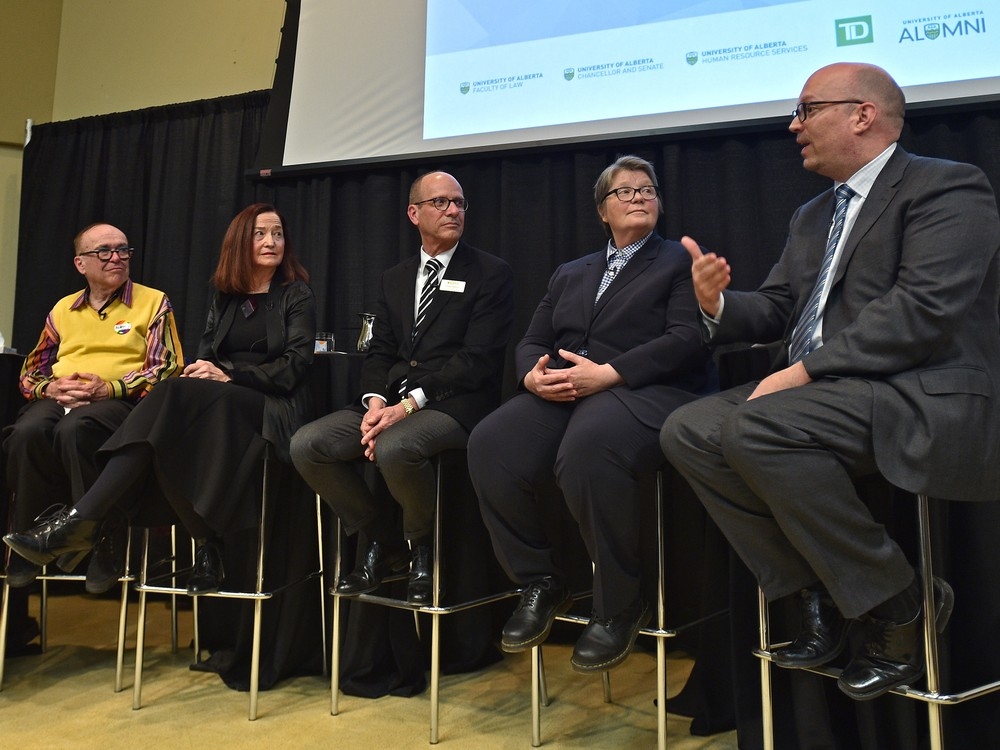
Some constitutional lawyers and professors, and plenty of activists, insist the UCP government’s new transgender policy violates young people’s Charter rights.
We don’t allow voting by people under 18. How is that not an equally clear violation of teens’ democratic rights?
We don’t let them sign contracts. Or drink alcohol, smoke, gamble or consume cannabis.
There are minimum age requirements for consensual sex and even for solo driving.
And all of those restrictions are on activities less permanent than changing one’s gender.
It has been argued, since the Smith government revealed its new gender-transitioning rules last month, that this is just like the Vriend case that was decided by the Supreme Court in 1998.
But in Vriend, we are talking about someone who was an adult, who had the right (and the emotional and intellectual maturity) to be treated equally regardless of his orientation.
In the case of the UCP’s transgender policy, we are essentially debating who should have guardianship over young people before they reach the age of majority (and thereby take responsibility for their most significant decisions) — their parents or the state, through public schools?
That makes this largely a political matter, and in politics polls are important. In this debate, the public is solidly on the side of the Smith government.
Ottawa’s Macdonald-Laurier Institute, while not addressing the Alberta plan specifically, concluded one of Canada’s largest-ever surveys of the public’s attitudes on cultural issues.
The institute found “Canadians oppose gender reassignment surgery for under-16s by four to one.” By a margin of two-to-one, Canadians “do not want transgender women to enter women’s sports competitions.”
Nearly 80 per cent think “political correctness has gone too far.”
More specifically, a public opinion poll done by the Legel pollsters between Feb. 9 and Feb. 11, found little support for “gender affirming care” for young people and virtually no support for such treatments without parental consent.
For instance, on the subject of gender reassignment surgeries for minors 17 and under, 45 per cent believe such operations should be prohibited outright. Thirty per cent “approve with parental consent, and only 11 per cent would support without any parental consent.” Respondents with children under 18 were the most opposed (49 per cent).
Leger also says “68 per cent of Canadians are against allowing athletes born male to compete in women’s sports, with 17 per cent in favour.”
It’s true that human rights should not be decided by a majority vote. It should not have been permissible for his employer to discriminate against the adult Delwin Vriend just because a majority thought they should.
But what is happening here is a political debate being driven by a tiny elite — about 11 per cent of the public.
lgunter@postmedia.com



